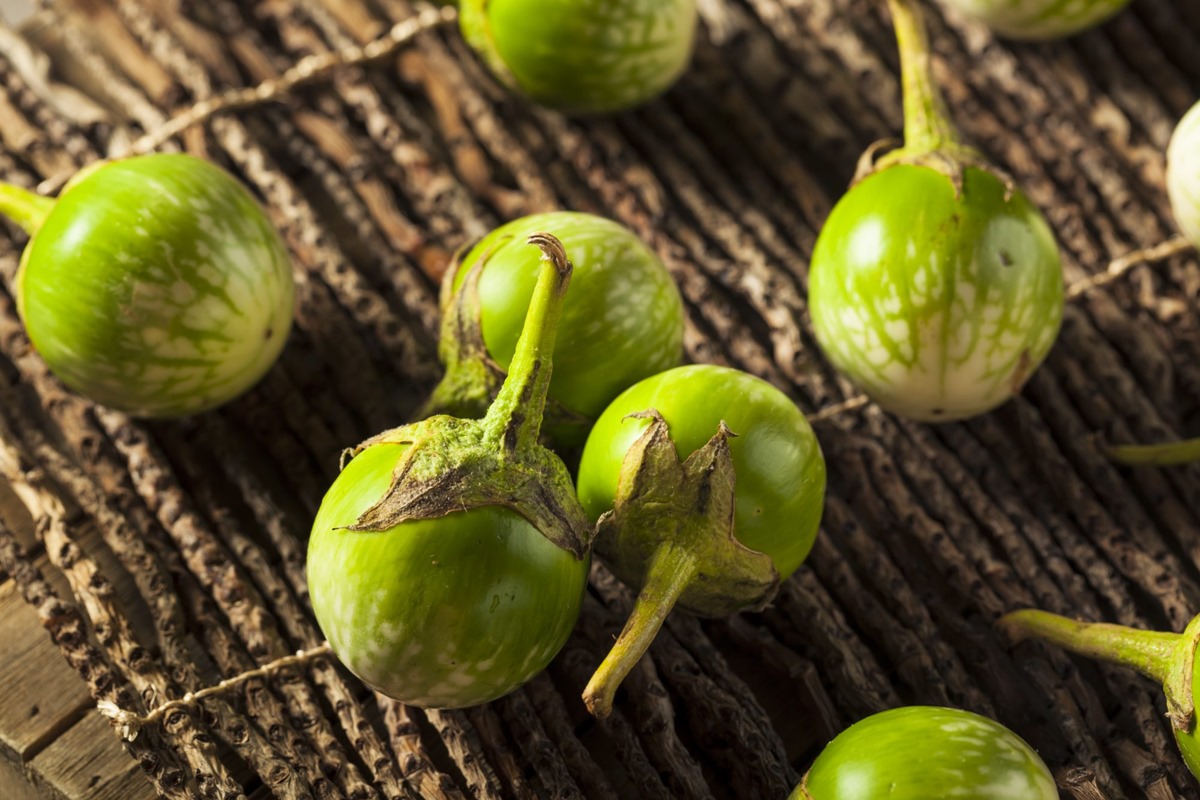
What makes the Thai eggplant special? Thai eggplant, also known as Makua Pro in Thailand, stands out due to its unique flavor, texture, and versatility. Unlike the larger, more common eggplants, these small, round veggies pack a slightly bitter yet subtly sweet taste. They come in various colors, including green, white, and even purple. Thai cuisine often uses them in curries, stir-fries, and salads, adding a delightful crunch and absorbing flavors beautifully. Rich in nutrients like fiber, vitamins, and antioxidants, they contribute to a healthy diet. Their ability to thrive in tropical climates makes them a staple in Southeast Asian gardens.
Key Takeaways:
- Thai eggplant, a small and flavorful vegetable, is a staple in Southeast Asian cuisine. It's rich in nutrients, low in calories, and can be grown in warm climates with proper care.
- Thai eggplant is not just a tasty addition to dishes; it also holds cultural significance in Southeast Asia. It's used in traditional medicine, featured in festivals, and considered a symbol of fertility and prosperity.
What is Thai Eggplant?
Thai eggplant, also known as Solanum virginianum, is a small, round vegetable commonly used in Southeast Asian cuisine. These eggplants come in various colors, including green, white, and purple. They are known for their unique flavor and texture, making them a staple in many traditional dishes.
- Thai eggplants are smaller than the typical eggplants found in Western markets.
- They have a slightly bitter taste, which adds depth to many dishes.
- The skin is thin and edible, unlike some other eggplant varieties.
- Thai eggplants are often used in curries, stir-fries, and salads.
Nutritional Benefits of Thai Eggplant
Thai eggplants are not just tasty; they are also packed with nutrients. Here are some of the health benefits you can gain from including them in your diet.
- They are low in calories, making them a great addition to weight-loss diets.
- Rich in fiber, they help improve digestion and prevent constipation.
- Thai eggplants contain antioxidants that help fight free radicals in the body.
- They are a good source of vitamins A and C, which are essential for immune function and skin health.
Growing Thai Eggplant
Growing Thai eggplant can be a rewarding experience for gardeners. They thrive in warm climates and can be grown in containers or garden beds.
- Thai eggplants need full sun to grow properly.
- They require well-drained soil with a pH between 5.5 and 6.5.
- Regular watering is essential, but the soil should not be waterlogged.
- These plants can be susceptible to pests like aphids and spider mites.
Culinary Uses of Thai Eggplant
Thai eggplants are incredibly versatile in the kitchen. They can be prepared in various ways to suit different culinary preferences.
- They are a key ingredient in Thai green curry.
- Thai eggplants can be grilled or roasted for a smoky flavor.
- They are often pickled and used as a condiment.
- In some cultures, they are eaten raw with a spicy dip.
Cultural Significance of Thai Eggplant
Thai eggplants hold a special place in the culinary traditions of Southeast Asia. They are more than just a food item; they are a part of the cultural fabric.
- In Thailand, they are often used in traditional medicine to treat various ailments.
- Thai eggplants are featured in many religious and cultural festivals.
- They are considered a symbol of fertility and prosperity in some cultures.
- Thai eggplants are often given as gifts during special occasions.
The Final Bite
Thai eggplants aren't just another veggie. They're packed with nutrients, adding a unique twist to dishes. These little green wonders are rich in fiber, vitamins, and antioxidants, making them a healthy choice. Plus, their slightly bitter taste and crunchy texture can elevate any meal.
Growing them at home? Not too tricky. They thrive in warm climates and need plenty of sunlight. Just keep an eye out for pests. Cooking with Thai eggplants is fun too. Whether you're making a spicy curry or a fresh salad, they bring a distinct flavor.
So next time you're at the market, grab some Thai eggplants. Experiment in the kitchen. Your taste buds will thank you. And who knows? You might just find a new favorite ingredient. Happy cooking!
Frequently Asked Questions
Was this page helpful?
Our commitment to delivering trustworthy and engaging content is at the heart of what we do. Each fact on our site is contributed by real users like you, bringing a wealth of diverse insights and information. To ensure the highest standards of accuracy and reliability, our dedicated editors meticulously review each submission. This process guarantees that the facts we share are not only fascinating but also credible. Trust in our commitment to quality and authenticity as you explore and learn with us.


